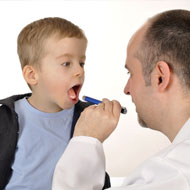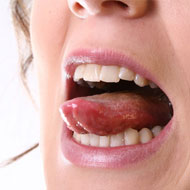- General Articles
- General Pregnancy Questions
- Baby Growth
- Pregnancy Diet
- Miscarriage
- During Pregnancy
- Twin Pregnancy
- Toddler Meals
- Home Remedies During Pregnancy
- Breastfeeding
- Pregnancy Week By Week
- Pregnancy Tests
- Ectopic Pregnancy
- Pregnancy Signs and Symptoms
- Pregnancy Stages
- Potty Training
- Fetal Development
- Preschooler
- Postpartum Depression
- Toddler Illness
- Baby Care
- After Pregnancy
- Molar Pregnancy
- During Delivery
- Beauty and Style
- Pregnancy Clothing
- Preconception
- Fertility
Most Common Causes of Bad Breath in Toddlers
Yes, toddlers can have bad breath too just like us adults! In normal healthy babies, the smell will disappear after simply rinsing the mouth or brushing the teeth. But what is that causes bad breath in toddlers in the first place? There are various reasons for this to happen. Bacteria are the main reason for bad breath. It is normal for these microorganisms to live in our mouth, but when they start to interact with leftover food, they cause bad breath.
The little food molecules could be anywhere in the mouth such as on the tongue, between the teeth, on the surface of the tonsils, or at the back of the throat.
Bacteria, particularly mutans streptococci, metabolize simple sugars and have a certain reaction to saliva, especially if it has been left undisturbed in the mouth for a long time. This reaction can also be a cause of bad breath, leading to what is known as ‘morning breath'.
Another reason for unpleasant breath is the sucking of a pacifier or chewing on a blanket or a cuddly. The object may have an odor from constant exposure to oral bacteria, saliva or old food particles. Infections at the back of the throat can also be the cause of this issue in toddlers, but this is quite rare. The smell could be due to inflammation of the tonsils or the pharynx. It is quite common though for food to remain at the back of the tonsils. Lastly, some toddlers tend to regurgitate their food or have gastro esophageal reflux, which can bring on bad breath.
Treating Bad Breath in Toddlers
It is important to start dental hygiene for your child from an early age. To get rid of bad breath, rinse your child's mouth or brush her teeth twice a day. If your child hasn't gotten teeth yet, then use a soft clean cloth to clean the mouth. You can also use infant toothbrushes, with fluoridated toothpaste that can help get rid of bacteria. Make sure the toothpaste when brushing is the size of a rice grain on the brush. Fluoride helps to provide resistance to demineralization and promotes removal of bacterial growths. Make teeth cleaning fun, as most children don't like their teeth being cleaned. Consult a pediatric dentist to know more.
Drinking water can help your toddler rinse off leftover food particles naturally. If your child sucks on her thumb, ensure you wash her hands with soap regularly. Sterilize pacifiers frequently by dipping them in boiling water or running them through the dishwasher. Also, if it is the blanket or cuddle that your child chews on, make sure you wash these often as well.
Ensure your toddler eats healthy, nutritious low sugar foods and drinks. Set a regular pattern of meals and snacks. Drinks between meals should be restricted to water or plain milk. If you have introduced juice to your toddler, make sure she has it only during her meals, and remember that eating whole fruit is much more preferable. Don't put your baby to put bed with a bottle. Bacteria can end up having a reaction with the left over milk particles in your toddler's mouth causing bad breath.
Start regular dental checkups when your child gets her first tooth, which is usually between 6 to 12 months of age. That way your child's dentist can check and remove any debris at the back of the throat. He can also check for any tartar buildup, dental abscess or gingivitis that could be causing the bad breath. Sometimes, respiratory infections also cause bad breath, in which case your toddler's doctor will be able to advise you on what to do.
Read more articles from the Toddler Illness Category.



 7 Must-Haves Before Your Baby Arrives
7 Must-Haves Before Your Baby Arrives Bonding Games for Babies
Bonding Games for Babies DIY Baby Bath Towel Apron
DIY Baby Bath Towel Apron Common Late Pregnancy Fears
Common Late Pregnancy Fears